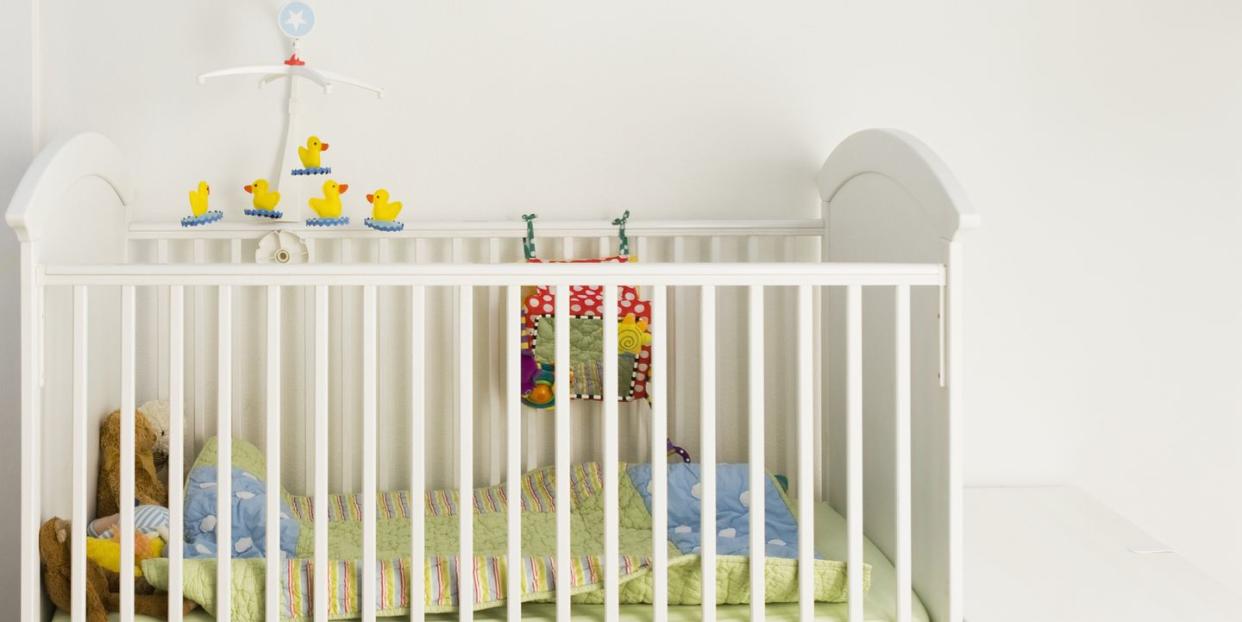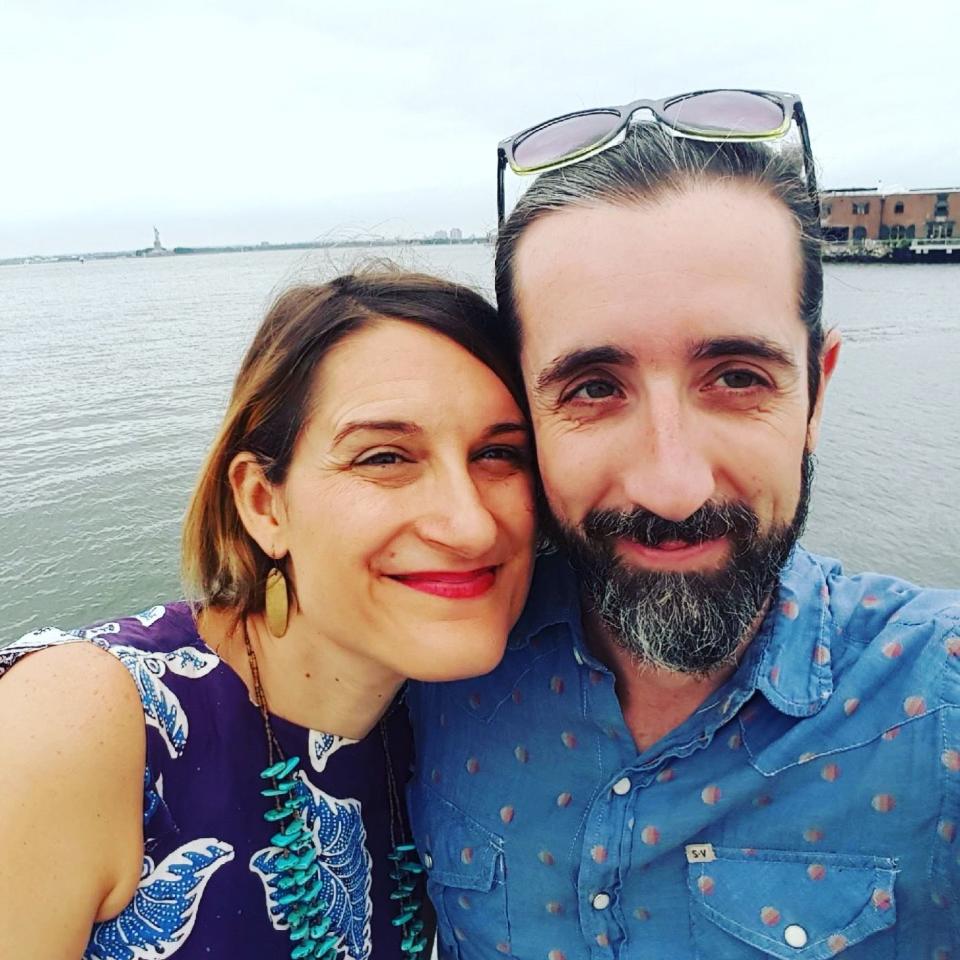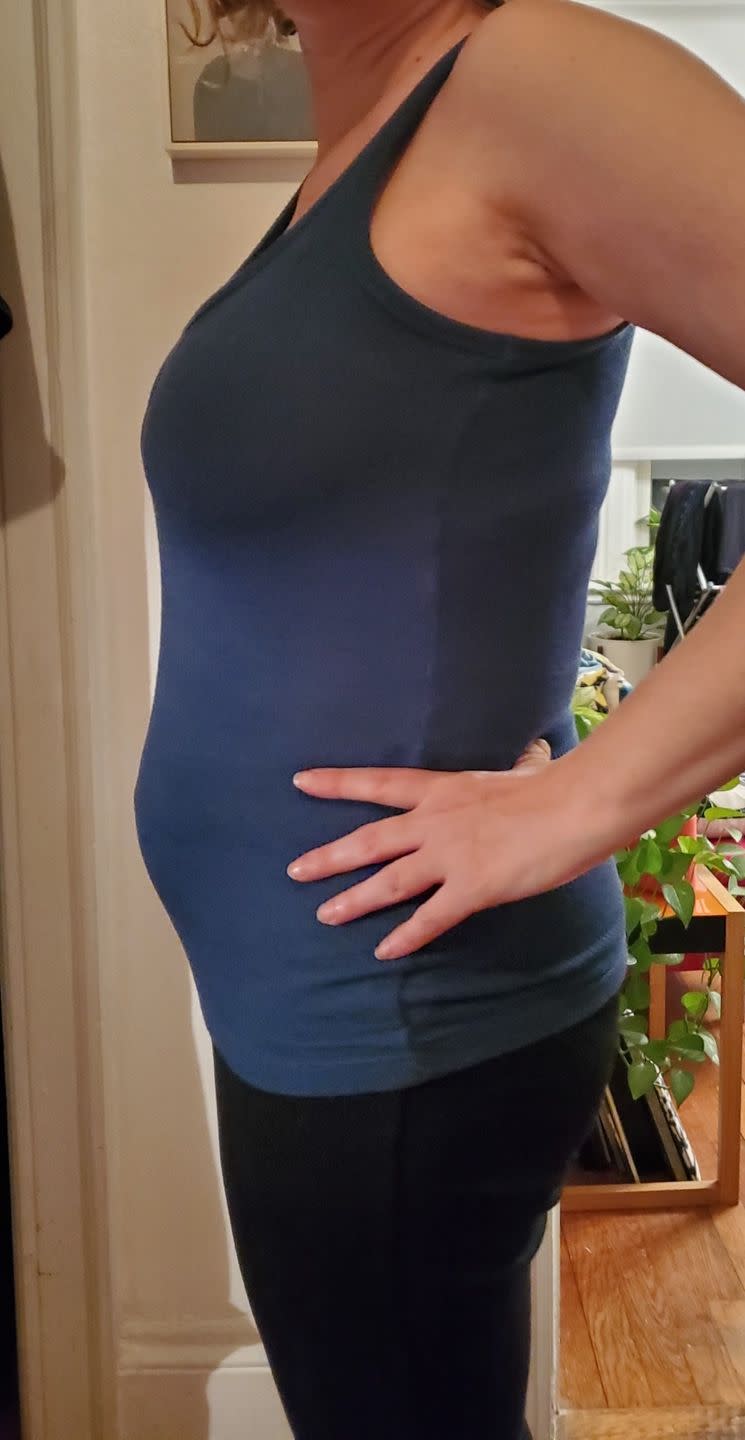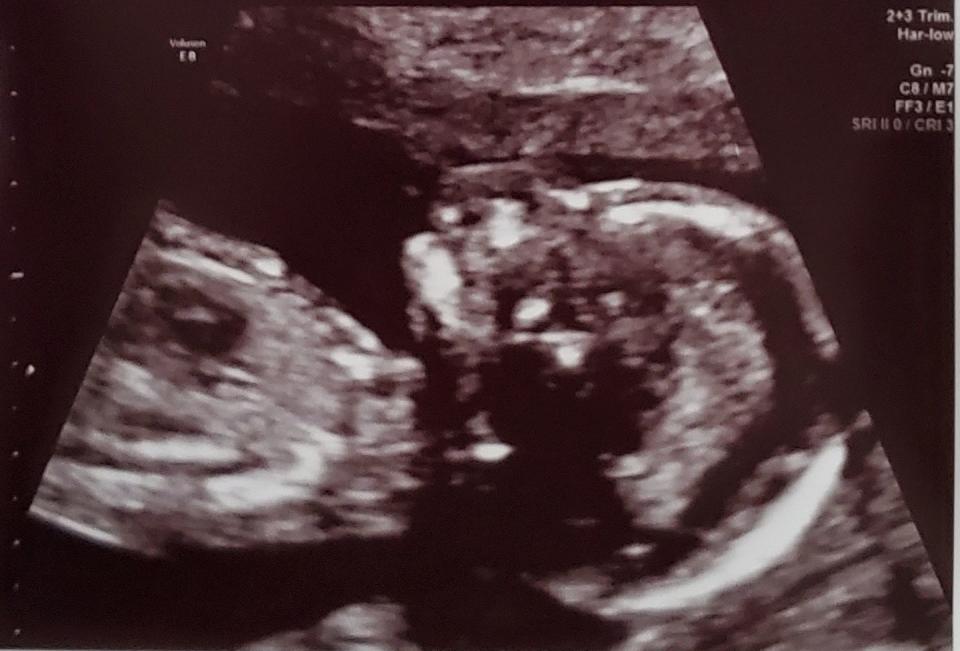What It's like to Be Pregnant During the Coronavirus Outbreak

My fiancé and I thought that getting pregnant would be the hard part.
After one year of trying, two rounds of IVF that resulted in no normal embryos, and one failed attempt at using my frozen eggs, we finally had a successful transfer in December—when I was already at the “advanced maternal age” of 42. We found out right before Christmas, which felt like the best present imaginable. Our parents started referring to their “grandchild” on phone calls, and friends gave us more tiny clothes than we knew what to do with. We joined a neighborhood parenting group and downloaded phone apps from What To Expect and The Bump. I was ecstatic. The dress rehearsal I’d been living up until then was about to end, and my real life was about to begin.
We could never have imagined that a few short months later, I’d be pregnant during a pandemic, at a time when reliable information is scarce and mixed messages are plentiful. At the moment, it’s unclear who to trust, everything is changing by the hour, and the scary truth is, no one’s certain what to tell pregnant women about how the coronavirus impacts us. With the baby due in August, I feel both happy that we’ve got time to plan all the ins and outs of giving birth, and terrified that, with so much longer to go, I have months to avoid catching a virus that could hurt my unborn child.

Two weeks ago—a lifetime in the world of coronavirus—we were researching which strollers and baby carriers to add to our registry and planning two showers: one in Ohio, where my fiancé’s extended family lives, and one near our home in Brooklyn, where our friends could gather to celebrate. We would drive to Ohio in a rental car, the best way to transport the countless presents we were sure to receive. I imagined the party in Brooklyn at a cozy neighborhood bar, friends gathered with a beer in one hand and a plate of snacks in the other, us accepting rounds of hugs and high-fives for finally pulling off the dream of having a baby. Now we’re “sheltering in place,” caging ourselves inside our one-bedroom apartment for our safety—and the baby’s.

All the milestones we’d been looking forward to seem meaningless now. The decision about which photo we’d use for the Instagram announcement, writing the perfect caption to express our excitement and the fact that it was a long haul to get here. The plans for a last-hurrah girls’ trip to Bermuda for a weekend in April with my closest friends. The trip to buy stylish-yet-comfortable maternity clothes that would show off my growing bump. Now the main thing on my mind is keeping our baby out of harm’s way.
But there’s very little information about how to protect that baby from this invisible threat. Over the last few weeks, I’ve been hitting refresh on the CDC website multiple times a day, hoping for something, anything, reassuring. But much of the available information—that there’s “currently no evidence” that COVID-19 can be transmitted from mother to fetus—is based on a March 2020 study of nine pregnant women in China, who all gave birth to full-term, seemingly healthy, babies. Even so, nine babies isn’t a large enough sample size to convince my anxiety-ridden brain that everything is going to be fine.
To make matters worse, The American College of Obstetricians and Gynecologists (ACOG) seems far from certain on how to advise pregnant women. Its website notes that “adverse infant outcomes” such as “preterm birth” have been reported in babies born to mothers who tested positive for COVID-19 during pregnancy. But they caution that this information is based on “limited data.” Apparently, it's “unclear” whether the virus can cross the placenta and impact the fetus.
What ACOG does seem certain of is that pregnant women are at a greater risk of “severe morbidity and mortality from other respiratory infections such as influenza and SARS-CoV,” meaning that with similar viruses, pregnant women were more severely impacted and had a higher fatality rate than the general population. Before I knew a pandemic was a possibility, the idea of catching a cold while pregnant terrified me. Now I’m cautious around even my own fiancé. “Did you wash your hands?” and “Have you used sanitizer recently?” are phrases I find myself saying way too often.

When I called my doctor’s office on Monday last week, the nurse urged me to keep my appointment for the all-important 17-week anatomy scan the next day. She said that as long as I washed my hands frequently and used hand sanitizer, I should be safe making the trip. “But how do you know?” I asked. “We’re monitoring the CDC website and advising all patients accordingly,” was her reply. I scoffed. The CDC? The same CDC whose website states, “We do not know at this time if COVID-19 would cause problems during pregnancy or affect the health of the baby after birth”?
Though it meant exposing myself and my partner to the waiting room and all of its potentially contaminated surfaces, we had to get to the hospital. (No matter how advanced the U.S. medical system might be, ultrasounds can’t be done virtually—yet.) So we strategically plotted our route, the city becoming an obstacle course to be navigated. The ferry was our best bet, we decided: We could stand outside on the deck, fewer surfaces to touch, fewer people to interact with.
We managed to get out of our apartment building without grabbing the stair bannisters or touching the doors with our hands. (And I was relieved that we didn’t run into any neighbors we’d need to awkwardly avoid.) Luckily, the ferry is just a few blocks from our house, and my fiancé daintily pressed the ticket-machine buttons, then immediately bathed his hands in sanitizer. In line, we stood a safe distance from the one other passenger. But by the time we stepped aboard, I was frantic. Had part of my jacket touched the door? And had I touched that spot, then rubbed my face? I kicked myself for not having bought a black-market mask. As the ferry chugged along, I wondered if our baby would be safer inside of my body or out. I wondered if there was anywhere I would be safe. “Everything’s going to be okay,” my fiancé reassured me. “You’re going to be fine. I’m going to be fine. And the baby’s going to be fine.” I admired his certainty.
I keep reminding myself that we’re some of the lucky ones: Three of our friends are due in the next few weeks. One was told her husband could no longer be with her in the labor and delivery room. Another is wondering whether there’ll be any hospital beds left by the time she gives birth in May. In a city with what I believed to be one of the best healthcare systems in the country, soon-to-be-moms are justifiably worried about whether they’ll be giving birth in hallways or at home, or on a navy hospital ship docked off Manhattan’s West Side. By August, the medical community will better understand how to deal with this crisis. That’s what I tell myself, at least.
My fiancé and I were fortunate to get pregnant at all. The American Society of Reproductive Medicine announced this week that they’re calling for fertility clinics to suspend all new fertility cycles and cancel those in progress. Just a few months ago, I was taking estrogen pills three times per day, using progesterone inserts each night, and getting progesterone shots in my butt every three days (thanks to my ever-patient partner). I would’ve been devastated if I’d been forced to delay that process for one month, let alone indefinitely. For a woman trying to conceive, especially at a less-than-“ideal” age, one month could be the difference between having a baby or not.
For now, I’m going to stay in my apartment, where we have enough canned soup, beans, prenatal vitamins, and yes, toilet paper, to last a few weeks, and hope to remain symptom-free. After that, we’ll have our groceries delivered when necessary. But my fiancé may still need to run out from time to time, increasing his chances of getting contaminated, and ramping up my panic.
As for me, I’ll take walks in the park in the afternoon when it’s less busy, so I can stay a safe six feet away from passersby. And I’ll continue to video chat with loved ones, gathering for impromptu check-ins and virtual happy hours, where I’ll be drinking herbal tea while everyone enjoys a much-needed cocktail.
Someday, I hope I’ll be lucky enough to tell our child about the pandemic that was raging outside while he or she was comfortably ensconced inside my body. Either they’ll listen wide-eyed in disbelief or, more likely, brush me off with a “whatever, Mom”—then ask if they can go outside with their friends and play.
For more ways to live your best life plus all things Oprah, sign up for our newsletter!

